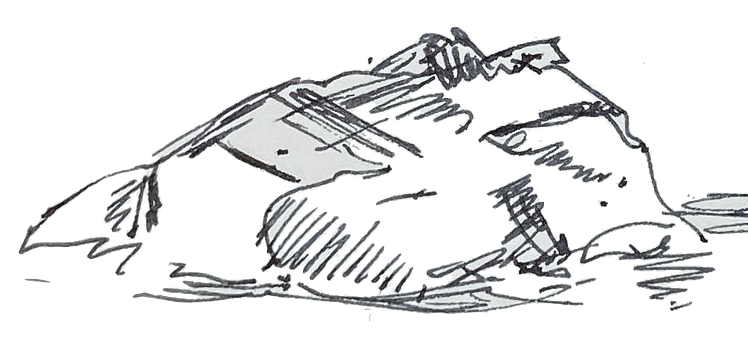Survive and Thrive as a Part Time PhD Researcher
Notes from another excellent online course provided by the University’s IAD.
Pre course Actions
We were asked, about a week before the course, to read an article in the online Grauniad on How to juggle a full-time job and a part-time PhD; to think of 5 top tips for being successful as a PT PhD; and bring questions of our own to the course.
Within the correspondence were also buried a couple of unannounced pdf attachments which contained resource for the course, I think, but also some links to blog posts and articles1 2 3 4 on doing a part-time PhD. One message stood out from these, beyond those that resonated with my own “top tips” (below), and that was this:
students who study part time for their whole degree finish sooner and have better results than full time students.5
Wow, that is encouraging. I have a hope not to overrun on my own PhD, and finish early if at all possible but there are a lot of factors in that particular critical path, most of which I have no idea about. For now, I am focusing on sustaining the momentum by doing something every day, unless I specifically plan not to. It’s working so far, and I have managed when external factors have confounded that approach.
Having a TBR (to be read) list is a good idea: I have one but it’s huge and diverse. Next task is to organise and prioritise that. Lastly from the blogs, making use of buffer time that provides transition space between work, home and study. My job is closely related to my research and there is a “double divided” of much of the studying/thinking I am doing, so it matters less between work and study time, but I also need to be sure to be fully present at home: to not be nodding along to a domestic tale whilst mentally drafting some thesisable nugget. Working memory needs to be dedicated to whatever is current or in the moment. Multitasking is your enemy!
My 5 top tips
- Block out time
- You have to switch off everything that might distract you from your PhD. Everything. The only way I have been able to do that is block out time when I am doing nothing else but PhD work.
- Have specific objectives
- That time should be spent working on something specific, whether tidying up your reference manager library, reading specific papers, searching for new ones or writing up notes.
- Track achievement
- Have a to-do list that you check in on every day and check off the things you complete or progress. Watching that build into a record of achievement helps keep me keep moving forward.
- Talk about your research
- I find it feels good to talk to other people about my research project. It is important and interesting, what you are doing. Tell people about it and what impact you hope to achieve. If you haven’t got people, talk to a dog. Or a gonk.
- Accept advice gracefully, and park it
- When you talk to other people, they may well have their own ideas or a book/paper/journal for you to read. Keep track of that stuff but sustain your immediate direction – don’t be distracted by what others think you should be reading. Make time for it when you can to check back on once you have progressed what you’re working on today.
The seminar
The 90-minute seminar was led by Steve Hutchinson who I have met before on a speed-reading course. He’s an impressive teacher, whether in the 2-D Zoom space or 3-D in real life, where he is a pretty impressive sketch noter. I still have his notes from that on my office wall: and still use the methods he taught me. Delegates were grouped for chatting about what works and what doesn’t: based on our preparatory notes and conversations between us. As well as my top five above, there were some superb ideas to help, including:
- writing is output, even if it’s shit;
- when you stop writing, note down prompts for next time
- get some time in early, before looking at your emails
- don’t compare yourself with other people (especially full-timers)
- focusing in small chunks of time
It’s also important to keep yourself reminded of why your PhD is important to you: what motivates you about it and the things you are learning. The vision involves “bricks, walls, and cathedrals”: the to-do list is the day to day reification of this idea.
“The PhD is a project to be managed, not a quest for truth.”
There were plenty of other ideas and strategies shared, reference within the course handout, that make it a useful reference to return to, especially when it might get sticky. Of greatest importance is the repeated reminder that the purpose is to pass.
Conclusions
This was absolutely well worth doing: both the preparation, the thinking, and also the engagement with the seminar. The delegates connected in a really lovely way, all fully supportive and empathic. I am thankful to them, and to Steve, and to the IAD for this course.
Footnotes
https://thesiswhisperer.com/2013/03/13/5-time-management-ideas-from-part-time-phd-students/↩︎
https://blogs.kcl.ac.uk/editlab/2020/04/01/the-secret-life-of-part-time-phd-students/↩︎
https://www.timeshighereducation.com/student/blogs/studying-part-time-phd-challenges-and-benefits↩︎
https://sccontrol.wordpress.com/2012/07/09/part-time-phd-some-problems-and-solutions/↩︎
Pearson, M, Cumming, J, Evans, T, Macauley, P and Ryland, K (2008) “Exploring the Extent and Nature of the Diversity of the Doctoral Population in Australia: A Profile of the Respondents to a 2005 National Survey” in M. Kiley & G. Mullins (Eds). (17-18 April, 2008). Quality in postgraduate research: Research education in the new global environment – Conference Proceedings. Canberra: CEDAM, ANU↩︎
